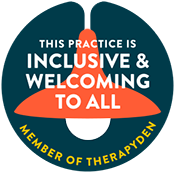Managing Relationships with the Enabler of a Narcissist: Navigating Complex Interactions

By Brenda Stephens, Licensed Professional Clinical Counselor
Navigating the world of narcissism can be daunting, especially when it involves the enabler who helps nurture this behavior. In this blog post, we’ll explore what it means to be an enabler, how this role impacts relationships, and strategies for managing these complex dynamics. Understanding these interconnected relationships is the first step toward fostering healthier interactions in your life.
Understanding the Role of the Enabler
The role of an enabler is often obscured by the presence of the narcissist. Enablers may not even realize their actions contribute to the unhealthy dynamics in the relationship. They often exhibit behaviors that shield the narcissist from accountability. In this way, they inadvertently create a protective bubble around the narcissist, allowing negative behaviors to flourish unchecked.
At its core, enabling stems from a complex interplay of caring intentions and misguided loyalty. Enablers might truly believe they are helping the narcissist or keeping peace in relationships. However, this support often manifests as overlooking harmful actions or making excuses for the destructive behavior. Understanding that this behavior, while often rooted in love, can lead to greater harm is crucial for both the enabler and those affected.
The enabler’s perspective typically revolves around the desire for unity, fostering a sense of duty among themselves. However, these feelings can cloud judgment and perpetuate a cycle of dysfunction. With time, recognizing that their enabling behavior does not equate to unconditional support can be a significant turning point in managing their relationships more effectively.
The Relationship Between Narcissists and Their Enablers
The relationship between a narcissist and their enabler is often turbulent yet seemingly stable, creating a facade of normalcy. The narcissist’s charm and charisma can make the enabler feel valued and important, often leading to a dependency on the approval of the narcissist. This dynamic creates a scenario where the enabler’s self-worth is closely tied to the narcissist’s validation.
This relationship can lead to a kind of emotional rollercoaster, where joyous moments can quickly dissolve into manipulation and distress. The cycle of highs and lows leaves enablers emotionally exhausted, often struggling to reconcile their feelings with the reality of their situation. In the effort to maintain a semblance of balance, enablers might overlook their feelings, enabling the narcissist to thrive in their negative behaviors.
Furthermore, the enabler often feels isolated due to the stigma surrounding narcissistic relationships. Friends and family may not fully understand the complexities, further entrenching the enabler in their role. This emotional isolation can create a barrier that prevents the enabler from seeking help and leads to a deeper entanglement in the narcissistic dynamic.
Identifying the Traits of an Enabler
Identifying the traits of an enabler is vital for breaking free from toxic dynamics. Enablers often display a strong tendency to prioritize the needs and feelings of others over their own, which can manifest as neglecting personal boundaries. They may consistently excuse the narcissist’s behavior, believing that understanding and nurturing is always a positive response. These traits are not inherently negative, but their misapplication can lead to destructive patterns.
Another common trait of enablers is an intense fear of conflict. This fear prompts them to suppress their concerns and avoid confrontation, all for the sake of maintaining the peace. This avoidance can lead enablers to deny or downplay the emotional consequences of the narcissist’s actions on themselves and others, ultimately contributing to a cycle of dysfunction that is hard to break.
Additionally, enablers may feel a strong inclination to rescue or save others, often stemming from underlying feelings of inadequacy or a desire for control. They might take on the responsibility of managing the narcissist’s emotions, believing that their intervention will lead to positive change. Unfortunately, this often enables the narcissistic behaviors to continue unchallenged, perpetuating harmful cycles.
The Impact of Enabling Behavior on Relationships
Enabling behavior can have profound and detrimental effects on relationships. The paradox here lies in the enabler’s intent of protecting the narcissist, which ironically contributes to one’s emotional turmoil and damage to the fabric of the relationship. Over time, the enabler may become a silent martyr, bearing the emotional weight of the narcissistic relationship without recognition or support.
The imbalance in emotional exchanges can take a toll on the enabler’s self-esteem. As they continue to prioritize the narcissist’s needs, they inevitably begin to neglect their own. This neglect can lead to feelings of anger, frustration, and resentment. Such emotions can seep into the relationship, creating further discord and increasing the enabler’s feelings of isolation in their role.
Moreover, the lack of accountability can breed a toxic environment where the narcissist operates without checks and balances. This dynamic leads to a decrease in trust, which further complicates the relationship. When disagreements occur, the enabler may find themselves in a position of constant compromise, which can lead to diminishing mutual respect and understanding.
Strategies for Managing Interactions with the Enabler
Managing interactions with an enabler involves open and honest communication. The importance of discussing feelings cannot be overstated; using approachable language can create a safer space for dialogue. For instance, initiating conversations with ‘I noticed…’ promotes reflection on their actions rather than inciting defensiveness. This shift in tone can foster a mutual understanding and pave the way for constructive discussions.
Furthermore, emphasizing the importance of listening can be instrumental for both parties. Encouraging enablers to express their feelings can unveil previously hidden motives, allowing both sides to address unrecognized grievances. Mutual sharing of experiences and emotions lays the groundwork for a more empathetic interaction, ultimately reinforcing the quest for healthier relationships.
Encouraging self-reflection within the enabler is equally vital. Creating moments for them to consider the effects of their actions can facilitate understanding and change. Using questions such as, ‘How do you feel when XYZ happens?’ can draw attention to feelings that may have been overlooked previously. This gentle prompting can trigger self-awareness and foster an intention to develop healthier reactions.
Setting Boundaries: Protecting Yourself from Unhealthy Dynamics
Setting healthy boundaries is a crucial stepping stone to preserving emotional well-being in relationships impacted by enabling behaviors. By clearly defining your limits, you assert your needs and expectations within the relationship. This might involve articulating what behaviors are acceptable and what will not be tolerated. Establishing these boundaries can lead to less emotional strife and create a healthier atmosphere for interactions.
It is important that these boundaries are communicated openly. Sharing these limits with the enabler not only fosters mutual respect but also models constructive behavior. Frame your boundaries positively; instead of saying what they can’t do, share what you ultimately need for a healthy dialogue. For example, expressing, ‘I need to take a break if the conversation gets too heated,’ can promote understanding and lead to healthier communication.
Additionally, maintaining consistency in reinforcing these boundaries is essential. It is common for enablers to test limits, whether consciously or unconsciously. By standing firm on established boundaries, you create a sense of safety and predictability in the relationship. This approach helps both parties understand that you prioritize taking care of yourself while engaging in healthier interactions.
Seeking Support: Finding Help in Difficult Situations
When navigating complex relationships with narcissists and their enablers, seeking external support is invaluable. Connecting with people who share similar experiences can provide a sense of validation and understanding. This support can take many forms, from trusted friends and family to professional therapy. Discussing your experiences openly provides a safe outlet for your feelings while gaining different perspectives on navigating these relationships.
Support groups specifically for those dealing with narcissistic behaviors can also serve as a powerful resource. In these environments, individuals can share their stories, find common ground, and receive guidance on coping strategies. Further, the acknowledgment that others face similar challenges can offer much-needed solidarity and encouragement.
Ultimately, being part of a supportive community empowers you to take action in your relationship. Regular interactions with others who understand the nuances of narcissism allow for shared knowledge and actionable insights. Together, you can foster resilience and develop approaches to advocating for yourself in your personal circumstances.
Empowering Yourself in Complex Relationships
While dealing with a narcissist and their enabler can be challenging, acknowledging the dynamics at play equips you with the tools to navigate these relationships more effectively. It’s essential to maintain healthy boundaries and practice self-care, ensuring you’re not unintentionally supporting unhealthy behaviors. By doing so, you’ll empower yourself and promote healthier interactions moving forward.






